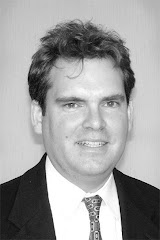Carroll Mayor Jim Pedelty takes a broad, historical view of the dynamics associated with rising gas prices.
“We have seen a gutless energy policy over the last 35 years,” Pedelty said.
That goes for both federal and state government, the mayor says.
As the city adapts to higher prices, Pedelty said, the local fallout could have been prevented back in the 1970s after the oil embargo.
Instead of allowing prices to fall then, the government should have taxed gas to fund a move to alternative energy.
“Then we wouldn’t be in the situation we are in today,” Pedelty said in an interview this week.
Pedelty, who has attended state transportation infrastructure meetings, thinks both Iowans and Americans should have swallowed some more modest, phased-in expenses through the years to improve roads and reduce dependence on foreign oil rather than waiting to get hit all at once.
In February, at a session in Jefferson with Iowa legislators, Pedelty and others pressed legislators on the gas-tax issue, with Pedelty wondering about the intelligence of the state tax staying flat at 21 cents a gallon for nearly two decades. What happens to state road revenues if gas hits $4 a gallon and fewer people are at the pumps, Pedelty wondered then.
Now we are there with some analysts predicting $5- a-gallon gas.
“I don’t think we’ll see them lower than this,” Pedelty said.
As far as the word on the ground in Carroll with gas prices is concerned today, there is some good news.
Two nuggets of pluses, in fact.
The city doesn’t have to pay federal and state taxes on gas, which amounts to about a 40 cent per gallon savings. What’s more, the prices started the steep climb in the summer, long after snow plows have been stored away.
So for the city it is better to have higher prices in the summer than winter “when we push snow all day,” Carroll Public Works director Randy Krauel said.
Right now, Carroll City Manager Gerald Clausen said, Carroll city officials are working within budgets, absorbing escalating fuel costs by trimming or moving around dollars from other accounts.
“We have not encountered any problems yet relative to the cost of fuel,” Clausen said.
“We are able to live within our budget.”
Clausen said there have been conscious efforts to reduce driving time but the city has not cut services.
“I’m sure the public hasn’t noticed anything,” Clausen said.
City officials may make up the difference by, say, delaying a capital purchase like a computer.
This doesn’t mean the city won’t have to make budgetary or service changes in the future if prices continue to rise, perhaps hitting even $5 a gallon.
“If it continues it will put pressure on where we allocate our funds,” Clausen said.
To just look at what different departments in the city spend on gas doesn’t tell the whole story.
In April, the police department spent $2,078 on gas with an average price of $2.73 (remember no federal and state taxes). Two years earlier, in April 2006, the police department spent $1,795 with an average prices of $2.08.
But the costs borne by the city come in other forms as deliveries of products and services come with what amounts to a gas surcharge, an increase in the general cost of doing business in an oil-dependent American economy.
Subscribe to:
Post Comments (Atom)





No comments:
Post a Comment